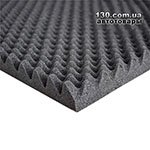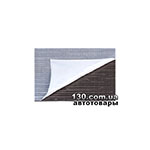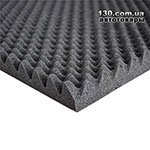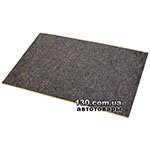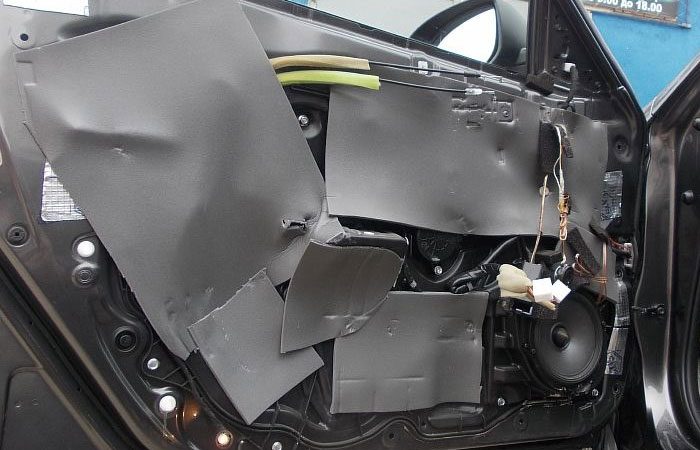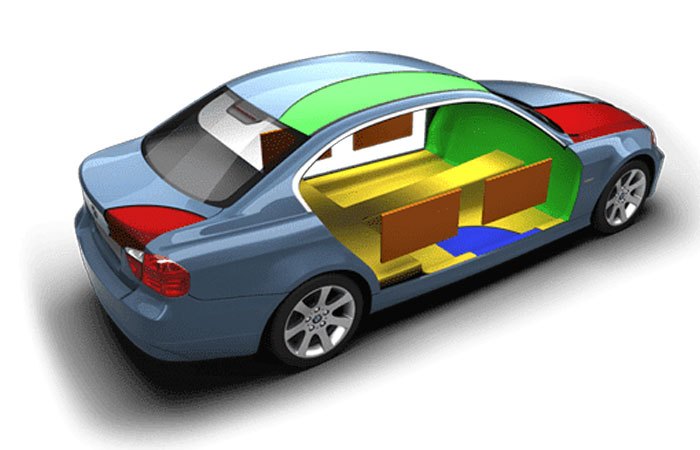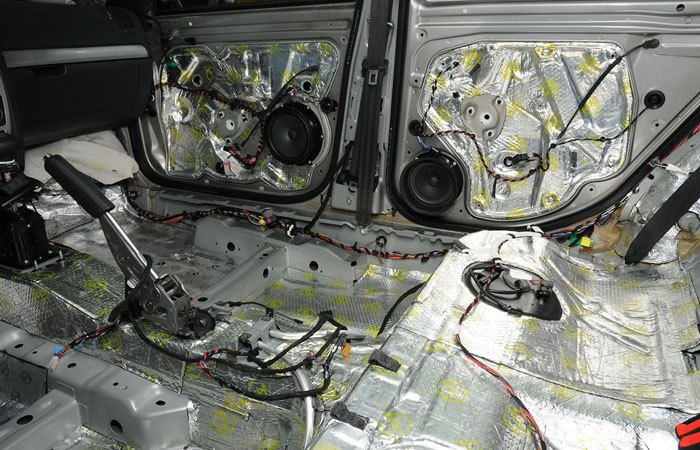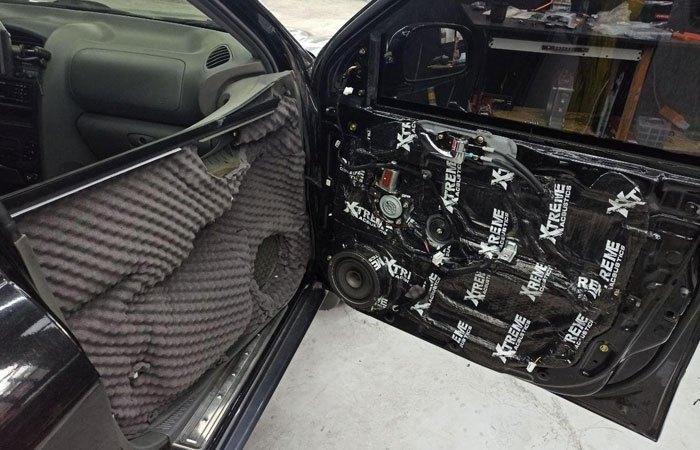What Is Car Soundproofing and Why Is It Important?
Car soundproofing is a set of materials and procedures aimed at reducing both external and internal noise levels inside the vehicle cabin. This process makes driving more comfortable, reduces driver and passenger fatigue, and helps protect internal vehicle components from vibration and wear.
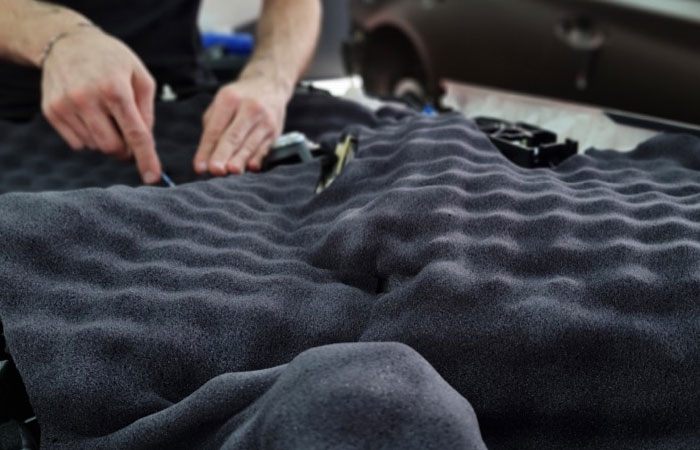
Why should you soundproof your car?
Many drivers encounter annoying background noise inside the cabin — this could be tire hum, aerodynamic noise, engine operation, or street noise. Without added protection, the vehicle lets most of these sounds through. This becomes especially noticeable on the highway, at high speeds, or during rain.
Soundproofing allows you to:
- significantly reduce noise inside the cabin;
- improve acoustics — speakers sound cleaner;
- increase comfort, even in budget vehicles;
- reduce body vibrations and resonance;
- protect metal surfaces from corrosion and moisture thanks to sealed panel treatment.
How does automotive soundproofing work?
The idea is not just to "seal up" the body panels, but to use materials that dampen sound and vibration waves. Two main types of materials are used for this purpose:
- Vibration insulation — dense materials based on bitumen or rubber. They suppress vibrations from the engine, transmission, and road. Typically applied as the first layer.
- Soundproofing — soft multilayer materials (polyurethane foam, felt, foam polymers). They absorb sound waves and reduce audibility inside the cabin.
The combination of these materials ensures maximum effectiveness. The more areas are treated, the quieter the cabin becomes. A standard “soundproofed car” usually includes treatment of the doors, wheel arches, floor, trunk, roof, and hood.
When is soundproofing especially useful?
Here are a few scenarios where car soundproofing is especially relevant:
- the vehicle has thin body panels and poor factory insulation (common in C-class and economy cars);
- a modern audio system is installed, and clean sound without background noise is desired;
- children or elderly passengers often travel in the vehicle and are sensitive to noise;
- the vehicle is used as a taxi or for long-distance trips — soundproofing reduces fatigue;
- additional hum appeared after tire replacement or tuning.
How much does soundproofing cost, and can it be done yourself?
The cost depends on the amount of work and the materials used. Treating only the doors may cost a few thousand UAH, while full vehicle soundproofing is significantly more expensive. However, many car owners successfully perform the work themselves — ready-to-use materials and detailed instructions make it possible even in a garage.
It’s important to choose materials with the appropriate heat resistance, weight, and thickness. For example, materials for the roof should be as light as possible, while those for the wheel arches should be dense and moisture-resistant.
Conclusion: Is car soundproofing worth it?
If you're bothered by unwanted noise, want to improve comfort, or enhance audio quality — soundproofing is definitely worth the investment. It’s one of the few upgrades that truly improves your car without major expenses or mechanical changes.
On 130.com.ua, you can find individual materials for treating different vehicle areas, as well as guides and tips to help you avoid common mistakes.

















